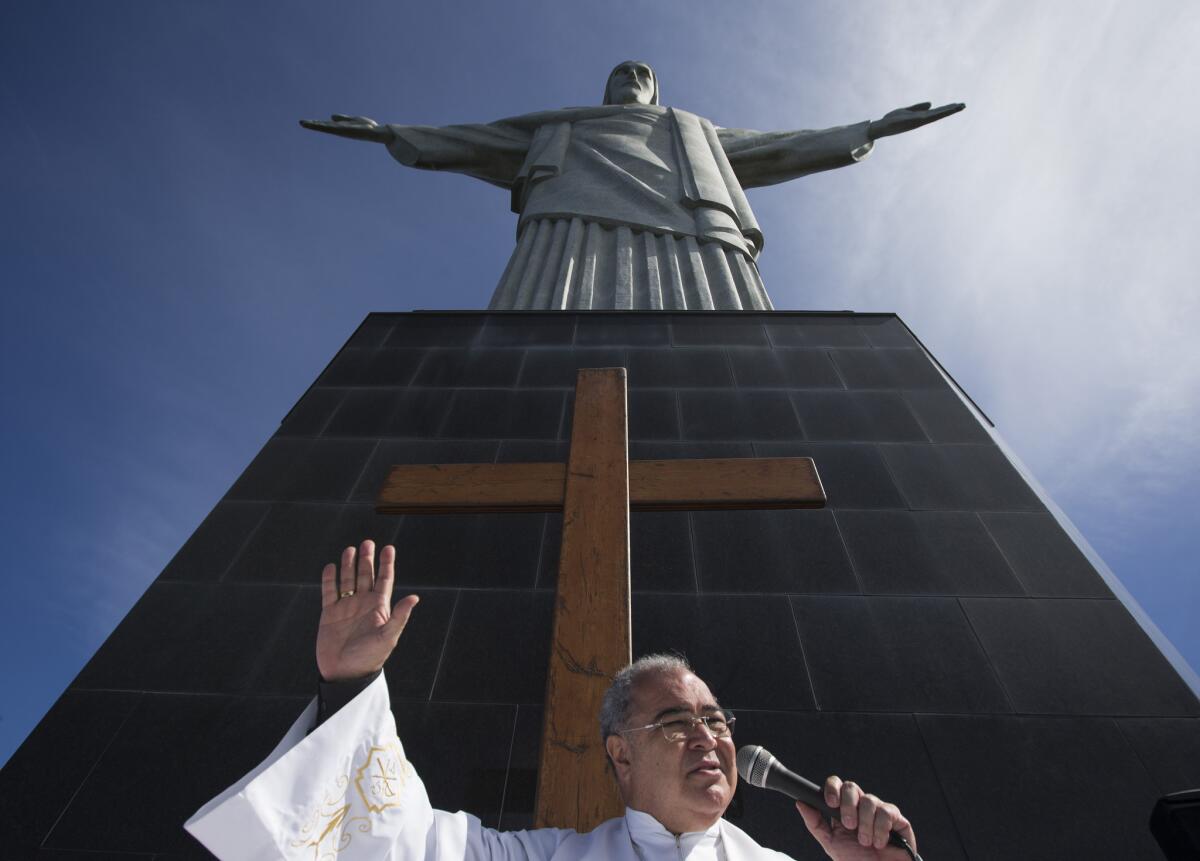Pope Francis looks past Europe, U.S., for new cardinals

- Share via
ROME -- Pope Francis named 19 new cardinals Sunday, including a bishop from Haiti and an archbishop from Burkina Faso, a choice the Vatican said showed Francis’ determination to focus on the poor.
Overall, the pope’s first batch of appointments to the College of Cardinals contained 10 men from Latin America, the Caribbean, Asia and Africa, reflecting his bid to give the Catholic Church a more global outlook.
Just four of the choices hail from inside the Curia — the Vatican’s governing body — and no churchmen from the U.S. were given the nod for a “red hat.”
“This reflects Francis’ desire to make the Church more universal and to correct imbalances,” said Gerard O’Connell, a Rome-based contributor to the online publication Vatican Insider.
“A different logic is at work here. The rules are no longer operative. The U.S., for example, is already disproportionately represented.”
Sixteen of the nominations, which will be formalized at a Vatican consistory Feb. 22, are under 80 years old, meaning they qualify to enter the conclaves held to elect new popes.
The Argentine pope named six cardinals from Latin America and the Caribbean, including Brazil, Nicaragua, Haiti, Chile and the island of Saint Lucia. The Latin Americans also include Mario Aurelio Poli, Francis’ successor as archbishop of Buenos Aires in Argentina after he was elected pope in March.
Ivory Coast and Burkina Faso represent Africa, while archbishops were also nominated from the Philippines (Orlando B. Quevedo, archbishop of Cotabato) and South Korea (Andrew Yeom Soo-jung, archbishop of Seoul).
The head of the Catholic Church in England and Wales, Vincent Nichols, was selected, as was Gérald Cyprien Lacroix from Quebec.
Curia appointments included newly appointed secretary of state Pietro Parolin, an Italian, and German Gerhard Ludwig Muller, the head of the Congregation for the Doctrine of the Faith, the Vatican’s doctrinal watchdog.
“The total of four Curia appointments is less than normal and shows the pope wants to put an end to careerism and the idea of automatic appointments,” said O’Connell.
O’Connell noted that although three of the four Curia nominees were Italian, only two other Italians made the list. “Some 28 of the 115 cardinals at the last conclave were Italians and many cardinals said that was over the top,” he said. “Francis is breaking with the tradition of automatically making the archbishops of major Italian cities cardinals.”
The new appointments boost the number of Central and South American cardinal electors to 19 in the 122 strong college of cardinals, no match for the 61 electors from Europe — including 29 Italians — but more than the 15 North Americans, of whom 11 are from the United States and four from Canada.
Africa and Asia now have 13 cardinal electors apiece.
Among the three new cardinals over 80 who will not vote at the next conclave is Monsignor Loris Francesco Capovilla, 98. He served as personal secretary to Pope John XXIII, who is due to be canonized in April along with Pope John Paul II.
Kington is a special correspondent
More to Read
Sign up for Essential California
The most important California stories and recommendations in your inbox every morning.
You may occasionally receive promotional content from the Los Angeles Times.













